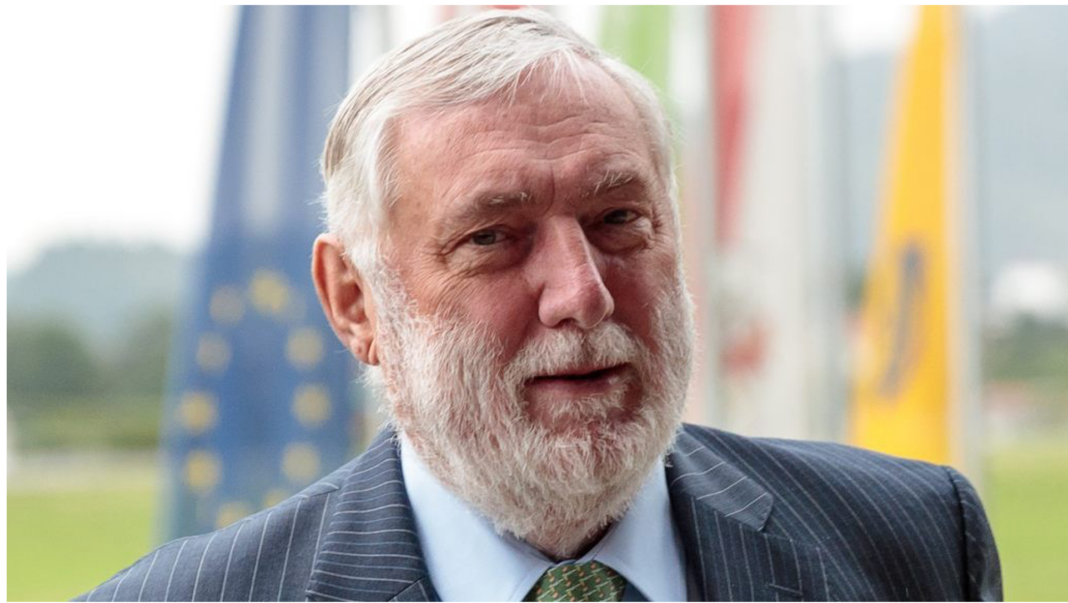By Yagmur Ceylan Korkut Hassan
Following successes of the similar programs in Europe (Vienna and Geneva notably), the Istanbul-based International Organization along with its European (think-tank, academia, cultural diplomacy, and media) partners decided to launch the special executive program for the future leaders on its own.
Hence, by the Program’s launch – February this year, this format gathered participants of diverse professional backgrounds and varied geographies, including Africa, Asia, Europe, and the Middle East – largely the emerging leaders from the government, international organizations, or industry. The Future Leaders Executive Program’s concept is rather simple: Participants are spending a whole day with top-level speakers – mainly the world leaders that shaped events of the past decades (two per month, last Friday-Saturday in month) in an open, Chatham House rules-based atmosphere, all situated within the historic premises of the city on two continents.
On the 29th of April 2023, Dr. Franz Fischler, former senior Minister (of the EU accession government of Austria) and the subsequent EU Commissioner (of the two consecutive terms) in the context of the 3rd monthly round of the above-mentioned program, entertained its participants on various issues, ranging from the European Union, rural development to the global food (production, distribution and sovereignty) crisis, and all the consequences its entails (including the ongoing war in Ukraine).
Excellency Fischler will be remembered by the very bold Agricultural reform during his time in Brussels, serving both Prodi and Barroso EU Commission. By many independent account, Fischler’ reform is considered as the most successful agricultural reform in Europe of all times.
Commissioner Fischler left a lasting impression on the audience by combining logical political and business strategies, outlining important socio-developmental issues in detail, and leaving enough room for debate from a range of viewpoints. The political choices and plans Dr. Fischler have made throughout his tenure (in the government, Commission and Alpbach Forum) are based on well-known traits of Austria, the state of its economy at the time, history, and his personal capacity to vision global events.
Following his presentation, topics covered included managing a world that is changing quickly; demography and rural development; fishery, agriculture; ethical and safety implication of the GMO usage; as well as geopolitical changes, globalization, international political economy, and democracy, etc.
Elaborating on the current global crisis and food issues, Dr. Fischler gave the following outline:
- Hunger and famine are mainly caused by 3 key drivers: military conflicts and terrorism, economic shocks and weather disasters.
- Since 2020 the number of hungry people is rising and the aim to achieve zero hunger by 2030 is very likely out of reach.
- There is an enormous geographic imbalance and an uneven-distribution of food within the global society.
- The most vulnerable are women and children.
- Most experts share the view that the world could nourish up to 10 Bio. people.
- Fighting hunger means providing access to food and a fair distribution of food between all countries.
- The Ukrainian war worsened food security internally and also globally by adding another 13 Mio to the food insecure people and to provide enough wheat for the World Food Programme.
- The free access to the Black Sea ports is of utmost importance to be able to bring enough food to the Middle East and to North Africa.
Addressing the governance crisis in Europe and beyond, Excellency Commissioner expressed the pressing need for a new leadership style, visionary and bold politicians of new generation.
As the session was moving toward its end, Dr. Fischler gave his insights on the role of EU in the cooperation on continental and global level as well as within the World Trade Organization (WTO). Brief reference on the Alpbach Forum – as one of the most prestigious and eldest heavy-weights exchange formats, was made, too.
In closing the session, he took advantage of a question asked on his opinion of youth participation in politics and expressed his faith in the capacity of the emerging leaders of the next generation to work for the betterment of the world.
As the event draw to a close, Dr. Franz Fischler and President of ICYF, Taha AYHAN (as a principal host to the event) jointly expressed what all participants had already concluded throughout the day: that the Future Leaders Executive Program offers a unique setting. Excellency Commissioner and President Taha both agreed that this particular format – in which an established experience meets the new passions and drives through cross generational leaders’ talks – represents a once-in-a-lifetime opportunity for emerging leaders from verities of environments: the state, intergovernmental, and corporate sectors of all meridians.
The day-long talks with Excellency Fischler was an enlightening, farsighted and engaging experience for all who participated. It gave a lasting impression on the attendees and inked a top standard stamp for the Program’s forthcoming rounds.
The mesmerising ship of insights and wisdom gets a full swing sail once again. Its next fascinating port of call awaits before too long, with a former Prime Minister of Norway, Bondevik, and former Presidetn of Slovenia and top positioned UN official, Danilo Türk (on 26th and 27th May).
Author:
Yagmur Ceylan Korkut Hassan author is Madinah Group Istanbul Turkey Office Managing Partner and Chief Executive Officer. She was attached to the office of European Union Youth and Education Turkey.




